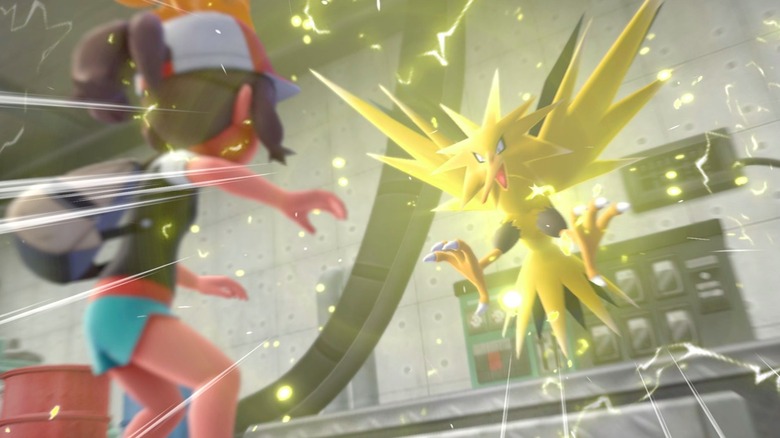If You Played Pokemon As A Kid, Your Brain Might Be Different
As a gamer, you may have grown up with the belief that playing video games rots your brain. And you'd be forgiven for believing that urban legend, which was likely started by parents who wanted their kids to go outside. But it turns out that video games might actually help you utilize special parts of your brain that develop during childhood. And if that isn't a point for gamers and kids everywhere, we don't know what is.
According to the site Sciencing, scientists have just uncovered a neuron in the brain that responds to images of Pokemon... sort of. A study was done with a very specific demographic in mind. Researchers gathered a group of adults who had consistent exposure to Pokemon as children. This means, anyone who played Pokemon on their Gameboy or had Pokemon cards as a kid was eligible to be included in the study. This group of subjects was shown images of the original 150 Pokemon while the scientists scanned their brains to watch for specific responses. They would also throw in pictures of random cars, animals, and objects to test the difference in response. What they found, was extremely interesting.
When the images of Pokemon were presented, a specific portion of their brains would light up with activity. This region in the brain, called the occipitotemporal sulcus, only lit up for these Pokemon lovers when presented with Pokemon pictures. When the gaming images were shown to adults who didn't play Pokemon as children, the occipitotemporal sulcus didn't engage in the same way.
Why Pokemon?
But why choose Pokemon as the focus of this study in the first place? According to the original study, this group of scientists used Pokemon because they are dissimilar to anything else found in nature, while still being a shared experience that multiple adults could have had as children. Because they aren't human in nature and don't resemble any known animals, places, or objects that these adults could have also experienced in their younger years, Pokemon were the perfect subject. Their very specific visuals combined with the fact that these adults had spent hours looking at their images as children gave the perfect unique shared experience to work with for this study. So when the occipitotemporal sulcus activated during the tests, the scientists could be sure it was because of the recognition of specific Pokemon, and not because these images resembled something else similar from their childhood.
So what exactly does this all mean? It means that those kids who spent hours playing Pokemon actually had a special section form in their brain to store all of that highly specific information. This revelation has helped scientists understand how our brains function as children to store specific information. At that point in your developmental stage, your brain has the ability to create various places to store information. And although the study looked specifically at adults who played Pokemon as children, it could work the same way for fans of the Legend of Zelda series, or any other gaming franchise.
It's possible your brain created a Legend of Zelda folder or a Mario folder to store the information pertinent to those games. Isn't that amazing?
How does this help?
But how does this help us? Other than the obvious answer that we now have a comeback for anyone who says video games rot your brain, it's also helpful for scientists to understand that the way we view something as a child determines how our brains store it. This, in turn, can be invaluable for parents and educators trying to figure out the best way to teach children. Our understanding of visual learning and how to implement that into helping children reach their full potential is helped by this study.
While these findings don't necessarily mean that parents will be encouraging their children to play Pokemon for all hours of the day, it does mean that video games have the potential to positively influence a developing brain. And even though it will take work for the scientists involved in this study to harness their findings for beneficial teaching opportunities, we do know that those opportunities exist. So the next time someone tells you that staring at a screen all day will damage your brain, just casually show them this very legitimate and prestigious scientific study and go back to catching your Pokemon in peace.



